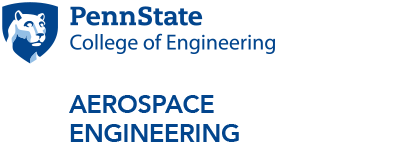Computational and Experimental Fluid Dynamics
Computational Fluid Dynamics
Validating advanced computational fluid dynamics tools is typically conducted via experimentation. Extensive testing involving multi-phase flows is conducted in our testing facilities to understand the fundamental physics of multi-phase flows, such as supercooled water droplet ice accretion to lifting surfaces or ice crystal partial meting engine icing. Testing results are not only used to gain physical understanding of flow processes, but also for tool development, and proof-of-concept testing of active systems aim to mitigate adverse effects related to flow dynamics.
Research Focus Areas:
- Aeroacoustics
- Reacting Flows
- Hypersonics
- Propulsion
- Turbomachinery
- Explosions
- Aerodynamics
- Rotorcraft
- Turbulence
Experimental Fluid Dynamics
Research Focus Areas
Research activities in the area of experimental fluid dynamics are conducted in the Department of Aerospace Engineering and the Garfield Thomas Water Tunnel.
Research Activities:
- Gasdynamics
- Aero-and-hydroacoustics
- Hydrodynamic Stability
- Cavitation
- Unsteady Flow Control
Current Projects:
- Studies of Mixing Enhancement of Supersonic Shear Layers
- The Effects of High Free-Stream Turbulence on Boundary Layer Structure and Transport Processes
- Surface Acoustic Wave Sensors and Piezoelectric Actuators for Investigations of Transitional and Turbulent Flows
- Experiments on the Basic Noise Sources of Centrifugal Turbomachinery Devices
- Studies of the Aeroacoustics of Supersonic Air Jets
- Study of the Instabilities in a Swirling Jet
- Boundary Layer Stability in the Presence of Impinging Particles
- Effect of Surface Irregularities on Cavitation Inception
- Cavitation Inception and Desinence in Slots
- Boundary Layer Drag Reduction by Polymer Additives in Water
- Effect of Microbubbles on Cavitation Inception
- Hydroacoustics of Boundary Layer Transitions
Key Faculty:
Research Areas
- Aeroacoustics
- Air-breathing Propulsion
- Astrodynamics
- Autonomous Flight and UAVs
- Computational and Experimental Fluid Dynamics
- Flight Science
- Multifunctional Structures and Nanomaterials
- Rotorcraft Engineering
- Space Propulsion and Plasmas
- Structural Dynamics and Adaptive Structures
- Vehicle Dynamics and Control
- Vehicle Systems Engineering
- Wind Energy



